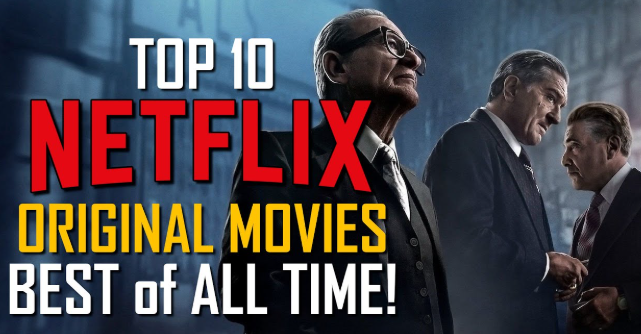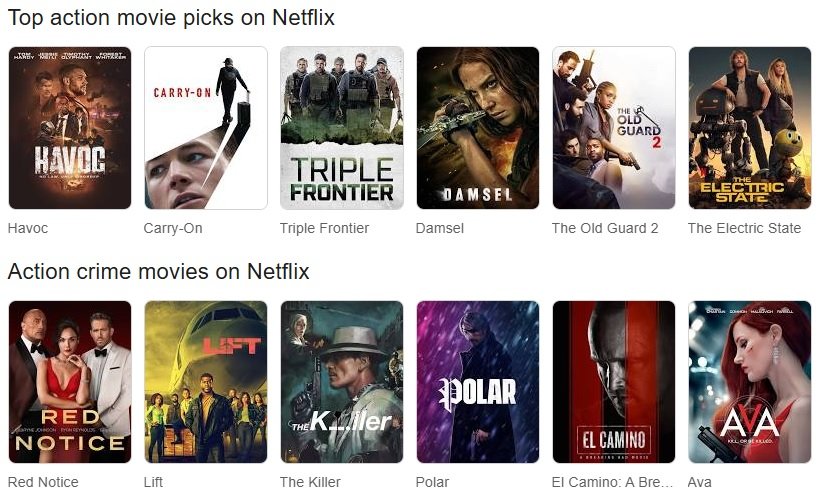Comedy movies have occupied a significant place in the entertainment industry, serving not only as a source of amusement but also as a reflection of societal norms and values. Over the decades, the genre has evolved dramatically, adapting to changing audience preferences, cultural contexts, and technological advancements. From the early silent films featuring comedians like Charlie Chaplin and Buster Keaton to modern-day productions that utilize sophisticated special effects, comedy remains a vital genre in cinema.
The unique characteristics of comedy films often include humor derived from exaggerated situations, witty dialogue, and the embodiment of relatable characters. These elements create an environment where audiences are encouraged to laugh, providing a much-needed escape from the rigors of everyday life. Comedy movies often serve as a tool for social commentary, allowing filmmakers to address serious issues through humor, making them more accessible and easier to digest for viewers.
One of the reasons comedy films are consistently popular among audiences of all ages is their universal appeal. Laughter knows no bounds, and funny scenarios can convey emotions that resonate with diverse demographics. Furthermore, the collaboration between writers, directors, and actors often leads to a synergy that enhances the comedic storytelling, resulting in memorable moments that stay with audiences long after the credits roll. Such collaborative efforts have paved the way for numerous iconic films that celebrate humor and have become benchmarks in the genre.
As we delve deeper into the world of comedy movies, we will explore their historical context, varying styles, and key players that have shaped the genre over time. Through this exploration, it becomes evident that comedy not only entertains but also plays a crucial role in bridging gaps between different cultures and generations, contributing to a collective sense of joy and shared experience.
The Evolution of Comedy in Film
The journey of comedy in film is a remarkable testament to the evolution of storytelling and audience engagement. Beginning in the early 20th century, silent films laid the groundwork for comedic expressions through visual gags and physical humor. Pioneers like Charlie Chaplin and Buster Keaton utilized their unique talents to convey laughter without the need for words. Their films were characterized by slapstick elements, which resonated with audiences and set the stage for the comedic elements we continue to appreciate today.
With the advent of sound in cinema during the late 1920s, comedy films experienced a significant transformation. The introduction of synchronized dialogue allowed for new forms of humor to emerge, exemplified by the pioneering work of filmmakers like the Marx Brothers and W.C. Fields. Their dialogue-driven comedies showcased wit and clever repartee, broadening the scope of humor beyond mere physical antics.
As the decades progressed, comedy began to diversify into various sub-genres, each appealing to different audience segments. The post-World War II era saw the rise of romantic comedies, highlighted by films such as “It Happened One Night” and “Roman Holiday.” This period also marked the emergence of satirical comedies, reflecting societal attitudes through films like “Dr. Strangelove” and “The Graduate.” Moreover, the 1980s welcomed the blockbuster comedy format, with films like “Ghostbusters” merging humor with adventure, thus carving a niche in Hollywood’s fabric.
The late 20th and early 21st centuries witnessed the rise of alternative and surreal comedies, as seen in the works of directors like Wes Anderson and Charlie Kaufman. These films often challenge conventional storytelling methods, offering a more introspective approach to humor. The proliferation of technology and social media has also influenced comedic styles, giving rise to new formats such as web series and stand-up specials, further diversifying the landscape of comedy in film. The evolution of comedy continues, reflecting cultural shifts and societal norms while keeping the essence of laughter alive.
Types of Comedy Movies
Comedy films encompass a wide range of sub-genres, each offering distinct themes and styles that cater to various audiences. One of the most popular sub-genres is the romantic comedy, often blending love stories with humor. These films typically focus on lighter, playful themes centered around romantic relationships. Classic examples include “When Harry Met Sally” and “Notting Hill,” which creatively combine romance and comedic elements to explore the complexities of love.
Another prevalent type is slapstick comedy, characterized by physical humor and exaggerated actions. This sub-genre often relies on visual gags and absurd situations, leading to humorous outcomes. Famous slapstick films can be seen in works featuring Charlie Chaplin or the Three Stooges, showcasing physical prowess and comedic timing that captivates audiences across generations.
Dark humor presents a contrasting perspective within the comedy genre. It addresses serious or taboo subjects through a comedic lens, often resulting in a thought-provoking juxtaposition. Such films challenge societal norms and political issues, with examples like “Dr. Strangelove” and “The Royal Tenenbaums” pushing the boundaries of conventional comedy while still delivering laughs.
Satirical comedies serve to critique or mock cultural, political, or social issues through humor. These films utilize irony, exaggeration, and wit to provoke thought and discussion. Renowned satirical comedies include “The Simpsons Movie” and “Borat,” both utilizing satire to highlight real-world absurdities while entertaining viewers.
Each sub-genre of comedy film brings its unique flavor to the cinematic landscape, appealing to diverse audiences with varying tastes in humor. Whether one enjoys the heartwarming charm of romantic comedies, the absurdity of slapstick, the biting edge of dark humor, or the incisive wit of satirical comedies, there is a wealth of laughter to be found within each category. The joy of comedy movies lies in their ability to entertain while reflecting the human experience through humor.
Iconic Comedy Movies to Watch
Comedy movies have long been a staple of cinema, providing audiences with laughter and joy while reflecting societal norms and challenges. Among the iconic comedy films, “Some Like It Hot” (1959), directed by Billy Wilder, stands out not only for its humor but also for its innovative approach to gender roles. This classic film features two male musicians who disguise themselves as women to escape the mob, and it offers a brilliant blend of satire and slapstick, which continues to influence filmmakers today.
Another significant entry in the realm of comedy is “Monty Python and the Holy Grail” (1975). This absurdist take on the Arthurian legend showcases the unique style of the Monty Python troupe, characterized by its surreal humor and clever wordplay. Its cultural impact is notable; the film has inspired countless parodies and references in popular media, solidifying its place in film history.
Turning to contemporary hits, “The Hangover” (2009) revolutionized the buddy comedy genre. This film features a group of friends who embark on a wild adventure in Las Vegas, having lost the groom-to-be. The film’s outrageous scenarios and relatable friendship dynamics resonate with audiences, making it a modern classic that captures the essence of comedy through its unpredictable narrative.
Additionally, “Bridesmaids” (2011) made waves with its portrayal of female friendships and wedding dynamics. Its blend of raunchy humor and heartfelt moments challenged stereotypes in gender representation in comedy, showcasing that women can deliver just as much comedic talent as their male counterparts. The film’s success has paved the way for more diverse storytelling in the genre.
Through these films, the world of comedy continues to evolve, offering both classic and contemporary perspectives that reflect the human experience with humor. Each of these iconic movies has left an indelible mark on the comedy genre, securing their status as must-watch films for any comedy aficionado.
The Role of Humor in Society
Humor and comedy movies hold a significant place within societal structures, often acting as a lens through which the norms and values of a culture can be examined. Comedy serves multiple functions, not only entertaining but also providing a platform for social commentary. Through satire and levity, these films can address serious topics, inviting audiences to reflect on complex issues in a more accessible manner. This ability to tackle difficult subjects allows comedy to play a crucial role in societal discourse, making it a unique vehicle for exploring human experiences.
Moreover, comedy movies serve as a reflection of social norms, addressing prevalent attitudes and behaviors while encouraging audiences to reassess their perspectives. By engaging with taboo subjects or controversial themes through humor, filmmakers can spark conversations and provoke thought among viewers. Such narratives illuminate societal contradictions and give voice to marginalized experiences, fostering empathy and understanding through shared laughter.
Additionally, humor has therapeutic qualities that promote healing and resilience. In times of distress, laughter provides an essential emotional release. Comedy films often encapsulate the absurdity of life’s challenges, helping audiences navigate their own struggles with a light-hearted approach. The shared experience of laughter fosters community, connecting individuals through relatable themes and experiences and underscoring the idea that humor can transcend personal barriers.
In essence, the artistry of comedy movies lies in their versatility. They can entertain while simultaneously prompting reflection on societal issues and healing emotional wounds. This dual role of comedy films reinforces their significance in culture, highlighting how laughter can illuminate the human condition and contribute to a deeper understanding of the world around us.
The Power of Comedy in Mental Health
Comedy has long been recognized as not only a source of entertainment but also a significant contributor to mental health and well-being. The therapeutic effects of humor are profound, with numerous studies indicating that laughter can trigger a cascade of beneficial physiological responses. When we laugh, our brains release endorphins, which are natural feel-good chemicals that promote an overall sense of relaxation and happiness. This biochemical reaction can reduce feelings of stress and anxiety, making comedy movies an accessible resource for improving mental health.
Moreover, laughter enhances social connections, fostering friendships and strengthening relationships. Sharing a humorous moment can break down social barriers, encouraging a sense of community among viewers. Whether it’s a lighthearted film that brings friends together for a movie night or a classic comedy that families enjoy, the act of collectively engaging with humor can introduce a sense of belonging. This combined social and emotional experience greatly contributes to emotional resilience.
The science behind laughter also highlights its potential as a coping mechanism. Laughter therapy, often employed in therapeutic settings, can aid individuals in dealing with life’s challenges. By framing these challenges in a humorous light, individuals may find it easier to contend with their problems. Furthermore, comedy movies offer a brief escape from reality, allowing viewers to momentarily detach from their stresses and immerse themselves in laughter.
Ultimately, the power of comedy extends beyond mere amusement; it has the potential to unlock emotional healing. The act of laughing not only elevates mood but also facilitates an environment where individuals feel safer to express their emotions. Thus, engaging with comedy, particularly through movies, serves as a delightful strategy for enhancing mental health and well-being, underscoring the importance of laughter in our lives.
The Future of Comedy Movies
As we navigate the evolving landscape of cinema, the future of comedy movies appears promising yet complex. The rise of digital streaming platforms has significantly transformed how audiences consume content. Services such as Netflix, Amazon Prime Video, and Hulu are not only producing original comedic films but also reviving classic comedies, thus catering to diverse tastes. As these platforms continue to invest in comedy, they provide opportunities for niche genres and diverse storytelling, paving the way for innovative comedic narratives that may not find footing in traditional box office releases.
Shifts in audience preferences are also reshaping the world of comedy. Today’s viewers seek authenticity and relatability, prompting filmmakers to create content that resonates with real-life experiences and social issues. The advent of social media has accelerated this trend, with comedic sketches and stand-up routines gaining traction via platforms like TikTok and Instagram. Audiences are increasingly drawn to humor that reflects their struggles and triumphs in contemporary life, suggesting that future comedy films will likely explore themes around mental health, diversity, and inclusivity.
Cultural shifts play a critical role in determining the direction of comedy movies. In recent years, there has been a conscious effort to amplify marginalized voices and perspectives within the comedy genre. This ongoing movement is anticipated to continue, resulting in a richer landscape where stories from different cultures and backgrounds are told. Furthermore, as societal norms evolve, filmmakers may also adapt their content to align with changing attitudes, potentially leading to the emergence of subgenres that emphasize different styles of humor.
In conclusion, the convergence of digital platforms, evolving audience tastes, and cultural shifts will significantly shape the future of comedy films. As the genre adapts to these influences, audiences can anticipate a fresh wave of comedic offerings that not only entertain but also provoke thought and reflection.
Why We Love Comedy Movies
Comedy films hold a special place in the hearts of audiences around the world. One of the primary reasons for this affection is the emotional connection viewers feel towards these movies. Comedy has the power to transport us back to moments in our past, often eliciting feelings of nostalgia. Whether it’s a classic film from our childhood or a modern comedy that reminds us of laughter shared with friends, these films often evoke fond memories that resonate deeply with us.
Another significant aspect of comedy films is their relatability. Many comedy movies draw on everyday experiences and the quirks of human nature, allowing viewers to see parts of themselves reflected on screen. Characters who navigate through awkward social situations or engage in humorous misadventures often mirror our own life experiences, fostering authenticity that deepens our appreciation for these films. This shared experience creates a sense of unity among audiences, as people laugh together over the same absurdities of life.
Moreover, comedy provides much-needed escapism in our often chaotic lives. In times of stress or uncertainty, turning to a comedy film can offer a reprieve from reality, allowing us to momentarily forget our worries and immerse ourselves in laughter. Engaging with humor has been shown to have therapeutic benefits, reducing tension and promoting a positive outlook. As writer Victor Borge famously said, “Laughter is the shortest distance between two people,” a sentiment that encapsulates the universal appeal of laughter in comedy films.
The emotional connection we form through comedy movies is both profound and lasting. Whether it is through nostalgia, relatability, or the joy of escape, these films continually remind us of the simple, yet powerful, impact that laughter has in our lives. As we indulge in the humorous narratives woven throughout the genre, we find not only entertainment but also a sense of community and shared joy.
Conclusion: The Enduring Appeal of Comedy
Comedy movies have long held a special place in the landscape of entertainment, serving as both a source of amusement and a means of connection among audiences. The universal desire for laughter is deeply embedded in the human experience; it transcends cultural boundaries and generations, allowing people to bond over shared moments of joy. Comedy films provide not only a respite from daily trials but also an opportunity for reflection on human behavior, societal norms, and even personal relationships, all while maintaining an entertaining and light-hearted tone.
The continued success of comedy in cinema signifies its importance in our lives. Whether through satire, slapstick, or situational humor, these films create a safe space for viewers to explore complex themes while evoking genuine laughter. This combination of enjoyment and introspection solidifies the enduring relevance of comedy cinema within our society. In a world that can often feel chaotic and overwhelming, the lightheartedness portrayed in comedy films serves as a comforting escape, reminding us of the simple pleasures of life.
Moreover, the evolution of comedy films reflects the changing societal landscape, showcasing diverse voices and perspectives that resonate with various audience demographics. This inclusivity enhances the genre, allowing it to connect with an increasingly broad audience. As we move forward, the significance of comedy movies remains steadfast, with new generations eager to embrace the joy they bring. By providing entertainment and fostering human connections, these films continue to occupy an essential role in enhancing our lives. The enduring appeal of comedy in cinema is not merely a testament to its past but also an assurance of its future in the entertainment world.
















